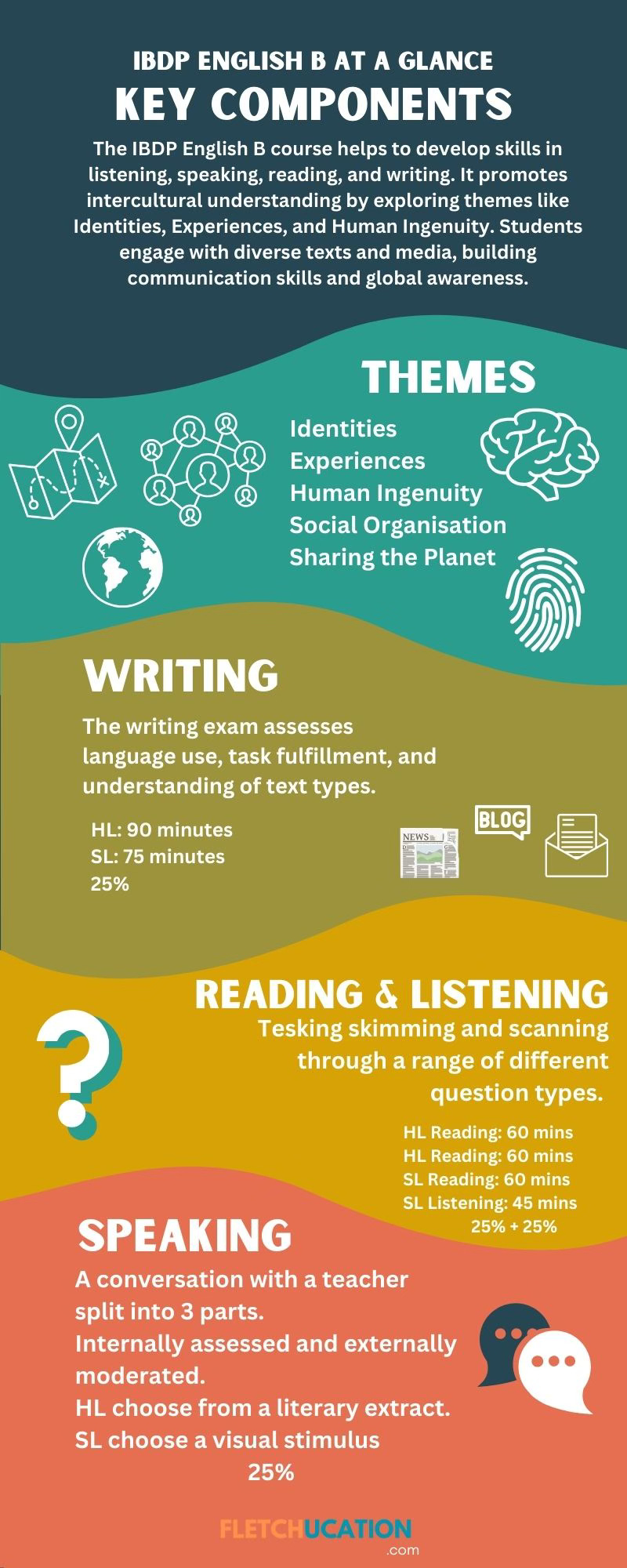What is the IB DP Language B Course All About?
A Path to Proficiency and Global Understanding

The IB Diploma Programme (DP) Language B course is an exciting journey into both language acquisition and intercultural exploration. Designed for students with prior knowledge of the target language, this course builds on linguistic skills while expanding cultural awareness. Available at both Standard Level (SL) and Higher Level (HL), it helps students become confident communicators, prepared to navigate diverse contexts and cultures.
What Does the Course Cover?
At the heart of the Language B course are five core themes that create rich opportunities for students to explore language and culture:
Identities: Understanding what it means to be human and how we express who we are.
Topics may include lifestyles, health and well-being, beliefs and values, and how language shapes identity. Students might explore questions like "What constitutes an identity?" or "How do language and culture contribute to our sense of self?"
Experiences: Exploring how personal and cultural experiences shape our lives.
Students can delve into leisure activities, customs, traditions, travel, and rites of passage. They might reflect on how travel broadens horizons or how different cultures mark significant life events.
Human Ingenuity: Examining how creativity and innovation impact society.
This theme covers entertainment, artistic expressions, technology, communication, and scientific innovation. Students may ask, "How do developments in technology influence our lives?" or "What can we learn about a culture through its artistic expressions?"
Social Organization: Understanding how people organize themselves and function within communities.
Topics include social relationships, education, law and order, and the working world. Students might explore questions such as, "What is the individual’s role in the community?" or "How do rules and regulations shape societies?"
Sharing the Planet: Considering global challenges and how individuals and groups respond to them.
This theme involves studying the environment, human rights, globalization, and ethics. Students may examine questions like "What environmental challenges do we face?" or "What ethical issues arise in our modern, interconnected world?"
These themes allow students to reflect on their own culture and experiences, while simultaneously engaging with the diverse perspectives of others.
Key Skills: From Receptive to Productive
The Language B course equips students with a comprehensive set of language skills:
Receptive Skills: Students engage with authentic written and spoken texts, ranging from news articles to conversations. They learn to analyze arguments, infer meanings, and understand cultural nuances.
Productive Skills: Students practice writing and speaking in varied formats. Whether narrating personal stories or crafting formal reports, they hone the ability to express themselves clearly and effectively.
Interactive Skills: Through class discussions and oral assessments, students enhance their ability to negotiate meaning, maintain conversations, and respond to diverse viewpoints.
For HL students, an additional literary component adds depth. The study of two literary works in the target language fosters critical thinking and a deeper appreciation of cultural contexts.
The Assessment Journey
The assessment structure is designed to evaluate a range of communication skills:
External Assessment (75%): This includes a writing exam (Paper 1), where students respond to prompts from different themes, and a listening and reading exam (Paper 2), where they analyze audio and written texts.
Internal Assessment (25%): Students take part in an individual oral exam, discussing either a visual stimulus (SL) or a literary extract (HL), followed by a conversation on a broader theme.
This structure ensures students are assessed on their ability to use the language in real-world contexts, reflecting both linguistic proficiency and cultural understanding.
A Holistic Approach to Language Learning
Language B takes a holistic, inquiry-based approach. It encourages students to connect their language studies with other aspects of their IB education, such as Theory of Knowledge (TOK), where they reflect on how language shapes knowledge, or Creativity, Activity, Service (CAS), where they apply their language skills in community service or creative projects.
By the end of the course, students are not just language learners—they are global communicators, equipped to navigate diverse cultural settings with confidence and empathy. Whether preparing for university or future careers, the skills acquired in Language B set students on a path to success in an interconnected world.
Students: Why Choose IBDP Language B?
The IBDP Language B course offers more than just language proficiency; it’s a gateway to understanding diverse perspectives and engaging with global issues. Students emerge from the course with the ability to express themselves competently in another language, think critically about cultural contexts, and communicate effectively in both personal and professional settings.
For anyone looking to enhance their linguistic skills while gaining a deeper appreciation of the world around them, IBDP Language B is the perfect challenge. You can read more posts about the Language B course by looking at the dedicated posts here.
Free Infographic
Feel free to use this infographic to share with students or to help you review the key components of the course.
Download a high quality version for print below.




